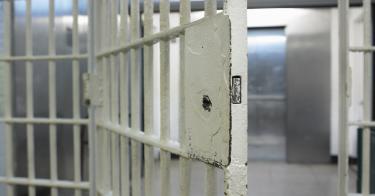Prison rape is horrific in any case, but gender ideologues in Washington have found a way to make it more common—all in the name of fairness to men who “identify as women.”
The list of accusers grows by the day. Rose Doe—a former female inmate in Rikers Island women’s prison in New York—was groped and raped by a male prisoner in 2022. In her lawsuit against the New York Department of Corrections, she alleged that the perpetrator told his cellmate that he claimed to be “trans” just so he could gain access to women. The number of sex crimes leading to his incarceration ought to have been enough proof of what was likely to come.
Ms. Doe’s story is not unique. In 2020, Tomieika Johnson, who had been in an abusive marriage before her incarceration, was forced to live with a male serial rapist, Richard Masbruch, at the Central California Women’s Facility. When she pointed to increasing incidents in the prison against inmates, including rape, she was told to “give it a chance.” She believes that, in doing so, “California has re-abused me, re-traumatized me.”
More than 20 years ago, President George W. Bush signed the Prison Rape Elimination Act, or PREA, into law. Its goal was to eradicate prisoner rape. Just this week, a subcommittee of the Senate Judiciary Committee, chaired by Corey Booker, New Jersey Democrat, held a hearing to assess the state of sexual assault since the law passed.
But the hearing seems to have largely avoided this elephant in the room: the precipitous rise in the sexual assault of women prisoners forced to share confined spaces with men identifying as women—including men imprisoned for committing sexual assault.
The fights to preserve in law the natural distinctions between men and women have raged coast to coast for the better part of a decade.
Happily, in some cases, states have passed favorable laws protecting women’s athletics or restricting the use of irreversible drugs and surgeries for minors suffering gender distress.
But the women in local, state and federal custody are the most voiceless and invisible in our public debates. As a result, they remain largely and unusually vulnerable.
The men who seek entry into women’s prisons aren’t a random sample. Of the 161 biological men housed in the Wisconsin Department of Corrections who identify as transgender, 50.3% of them have been convicted of at least one count of sexual assault or sexual abuse.
As of September, there are 2,186 incarcerated people who identify as transgender, nonbinary or intersex in California. One-third of the biological males in this group who seek to transfer to female prisons are convicted sex offenders.
None of this ought to be surprising.
There are innate biological differences between men and women. We know that on average, men are larger, stronger and more violent than women. We know that men commit almost all rapes.
That’s why we have separate jails and prisons for men and women in the first place. Such separation is more, not less, important when it comes to males incarcerated for violent sexual offenses.
And yet in the name of fairness, political elites on Capitol Hill have tinkered with the PREA to ensure that male inmates who identify as women are treated as women. A clown-world measure of fairness trumps the safety and privacy of female inmates. This manipulation of a 20-year-old civil rights law does violence to the intentions of its drafters and to the very women it was designed to protect.
When it comes to incarceration, inmates have no choice over where they are housed, where quarters are cramped, where privacy is diminished. As a result, Congress would do well to revisit the Prison Rape Elimination Act. Rather than simply giving lip service to prison safety, it’s time to earnestly ensure prisons are once again governed by law, order and common sense.
Women should not be sacrificed on the altar of gender ideology just because they’re behind bars.
This piece originally appeared in the Washington Times




